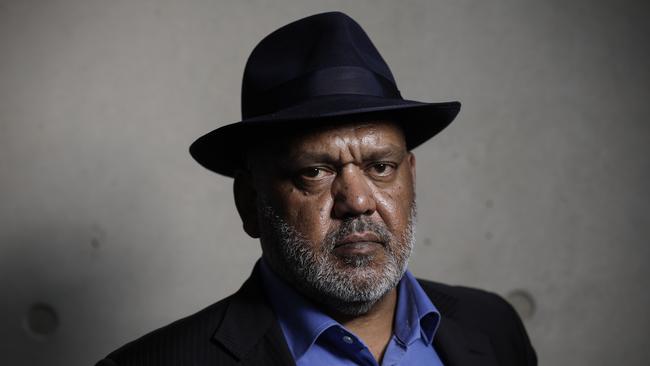Planets are aligned for indigenous voice, says Noel Pearson
Cape York leader Noel Pearson says a constitutionally enshrined voice to parliament has ‘not been precluded’ by the government.

Cape York leader Noel Pearson says a constitutionally enshrined voice to parliament has “not been precluded by the Morrison government”, as he outlines his belief that the ambitions in the Uluru Statement from the Heart can be achieved.
Mr Pearson said the door was still open to implement the Uluru statement, despite Scott Morrison ruling out backing a constitutionally enshrined voice.
The prominent indigenous leader said “all the political planets have lined up” for progress on the issue.
Mr Pearson is a member of a senior advisory council that will recommend a model for a legislated indigenous “voice to government” to Indigenous Australians Minister Ken Wyatt.
Mr Wyatt convened the advisory body as he attempts to bridge divisions between the government and indigenous leaders on the question of a voice to parliament.
But after a strong declaration from the Prime Minister that a voice will not be recognised in the Constitution, Mr Wyatt is pursing a legislated voice to government.
Constitutional recognition for indigenous people is being progressed as a separate process.
Mr Pearson, speaking in Canberra on Thursday night, said: “I do not accept that we have been precluded from this question (of a constitutionally enshrined voice) by the Morrison government.
“If there is a pathway through this that can be articulated and fairly found, we will get to the destination. And the question might hinge on the meaning of enshrinement,’’ Mr Pearson said at a Law Council of Australia event.
“No indigenous advocate is talking about enshrining the voice in the manner of the High Court in the Constitution.
“We are talking about sufficient status in the Constitution to empower the parliament to legislate the creation of the voice that will not impede the parliamentary process. We will accept parliamentary supremacy in a way that provided the necessary status that would define recognition.”
Mr Person said a constitutionally enshrined voice needed a “Nixon to go to China”.
“This requires a conservative government to lead constitutional reform,” he said.
“There is no better time than now for us to finally come to grips with this issue. All of the political planets have lined up, we have a conservative government, we have Nixon, we have China, we have really got a chance. We have got a very good chance.”
A constitutionally enshrined voice was backed by Aboriginal delegates at a summit in Alice Springs in 2017.
The 2017 voice proposal would be referenced in the nation’s birth certificate and act as an advisory body that would advise parliament on indigenous issues.
The proposal, which was overseen by the federal government’s Referendum Council, was dismissed as a “third chamber of parliament” by then prime minister Malcolm Turnbull.
Mr Pearson criticised Mr Turnbull and Tony Abbott for failing to show leadership on the proposal, which he declared was supported by constitutional conservatives.
“There was a strange overlapping consensus between constitutional conservatives and indigenous advocates,” he said.
“Because from the point of view of the conservatives, a voice would mean that there would be no resort to the High Court.
“It would give people a democratic voice in the lawmaking process. It wouldn’t diminish the supremacy of parliament, it would be a voice that would be heard but not necessarily heeded.”




To join the conversation, please log in. Don't have an account? Register
Join the conversation, you are commenting as Logout